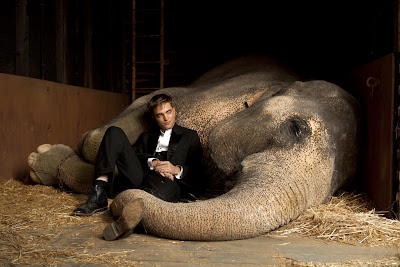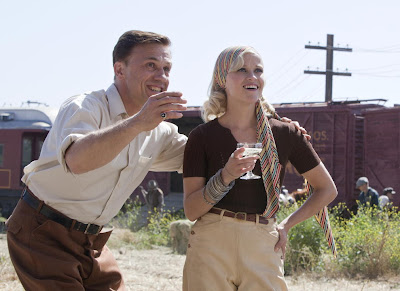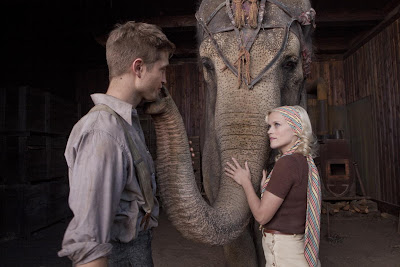The Occupational Psychology 2: Reflections on their projections in Chile 
time ago, when I first created this blog got an article entitled: "The Work Psychology: A new field of action or the conquest of a work space," in basically mentioned a book appeared in in Argentina which was an introductory part about what that involves or would involve professional development linked to the field of occupational psychology, today after a long time that first article and with a road trip on a professional level from that paradigm, I decided to write the second part (if you can call this post as well) because on the one hand the number of comments I received both in my blog and in my email and recently the interest of undergraduate students in my country in the context of their thesis work. And is that while a formal level (if we can speak of a formal academic and regulatory framework and not epistemological) does not exist in Chile this field (because any institution of higher education has created) every day I check the validity, necessity and by the way existence of psycho task in working places.
is undeniable that the world of adult education has changed considerably in recent decades. Until recently this type of learning is primarily centered in those who had not the possibility of accessing the school system and therefore needed a learning opportunity that would meet basic educational needs, ie, we spoke of compensatory education. However, in 1930 the British economist John Maynard Keynes predicted that technological advances would develop so quickly beyond our ability to meet the changing needs of society. So in 1960 Peter Drucker predicted the emergence of a new social layer of knowledge workers (PF Drucker 1959) and the trend towards a knowledge society (Drucker 1969). Such a society is characterized by economic and social structure in which knowledge has replaced labor, raw materials and capital as the most important source of productivity growth and social inequalities. In this scenario the new knowledge society ", would require a continuous adaptation of our competitions.
Looking around the world, and particularly the Chile of today, it is clear that Keynes and Drucker ads are in full force. If we focus only on labor, we can realize that they no longer enough to have learned a trade or have acquired a profession, but requires further development and continuous updating of knowledge. All this in a context that has as its learning processes in adult ie it is not teaching, is andragogy.
We note that andragogy is a discipline that studies the planning, implementation and evaluation of educational interventions with adults, which are inserted into a different psycho-social context of school education, while relating to continuing education for life . Therefore, the model responds strongly encourage continuing education requirements, which is defined as all "those forms of education or training pursued by people who have left formal education at a level, they are exercising a profession or have taken on adult responsibilities in a given society "(UNESCO, 1993). Andragogy today has evolved along with other human sciences such as psychology, so we can see influences and cognitive constructivist approaches to learning (and currently the connectivist, linked to online learning in a knowledge society).
Under all this context, it becomes necessary understanding and support from a psychology of learning processes of adult learners, either from a level of formal education (that which is done in the schools and enroll, therefore, in what has been called "school culture". This is the traditional education, which takes place in schools, universities and other institutions dedicated to training), as well as in instances of non-formal education (that which is done in non-formal, ie outside of schools. In this sense, is an education that is subtracted from the constraints the historical and traditional school culture) and finally in informal education settings (that which is produced by the mere fact of living in a particular social context. It is based on the fact that all the social, employment and life generate learning, even without explicit teachers or teaching-oriented content).
If we look a little corporate training policies within organizations in Chile, we see that these have gradually evolved from simple Indo emulation training models based on formal and informal education to seek a strategic intentions of knowledge management processes and collective intelligence, they have understood the importance of knowledge flowing in them and should be socialized and shared (Nonaka and Takeushi), but this is necessary to move from knowledge to learning and who better than a professional psychology training to be a contribution to it. At the end of the last century, Peter Senge (1995) in his book The Fifth Discipline noted that organizations are not learning, but are the people who compose those engaged in this process, which, when incorporated into the practice and socialized into the organization, creates the foundation for a learning institution, to understand the importance of this type of learning enables us to understand in a present context the significance of the emergence of Web 2.0 and social web, which is characterized by the learning network and can be built by thousands of individuals in different places and at different times, so in the field of organizational learning and not only talk about the importance of knowledge is also essential to create learning ecologies and understand and integrate new pedagogical paradigms such as George Siemens Connectivism therefore in the field of corporate training we're facing a new scenario that is necessary to find new ways of teaching that are able to meet the needs of adult students attending its construction, the environment in which they operate and their learning styles.
In this sense takes on special importance to recognize adults as a special type of student with special needs (and of course special) education, training and updating, and with particular characteristics derived from its status as (an adult) . From this perspective requires professional intervention that aimed on the one hand understanding the learning needs of workers in an organization (DNC) and approached from a methodological and epistemological design and development of training programs atingentes these needs, this involves addressing the issues relating to learning adult and the world of work, job training, his techniques, careers advice and career guidance, organizations, culture, values, mission and vision is that in general, the training process, are generally related to change processes in companies and, therefore, aimed to prepare the members of the organization to achieve qualitatively superior status to be achieved. This then implies the creation of new skills, for, in the medium and long term, to consolidate the changes on the basis of the creation of new cultural and organizational values, as to achieve consistent changes have to create new habits, behaviors and behavior change , promote new skills and it plays (or could play) a fundamental role Psychologist job in developing a strategic training plan and the multiple processes that this entails, as well as in the implementation of a set of procedures to operate learning reality either individual, group and organizational. Bibliography
Adam, F. (1987). Andragogy and university teaching. New York: American Federation of Adult Education (FIDE).
Alcalá, Adolfo (1995). Important observation and commentary about the legal and other relevant documents of Adult Education.
Honey P, Mumford A. (1992). The Manual of Learning Styles. Berkshire: Honey, Ardingly House.
Knowles, MS (2001). Andragogy. The Adult Learning. Mexico: Oxford. University Press
Lenz, J. (2008). How adults learn in corporate environments?: Essential knowledge for the design, planning and implementation of enterprise training. Material university course in corporate training expert. UTN, Argentina.
Senge, Peter (1995). The Fifth Discipline: learning organizations. Edit. McGraw-Hill.


 And as every hero needs a villain, Christoph Waltz whom we have once again proves the rich dark exploration of her characters that do not repeat themselves, and who manages, despite being the scourge of extreme cruelty and inexcusable, that ignore and even little forgiving.
And as every hero needs a villain, Christoph Waltz whom we have once again proves the rich dark exploration of her characters that do not repeat themselves, and who manages, despite being the scourge of extreme cruelty and inexcusable, that ignore and even little forgiving. 

